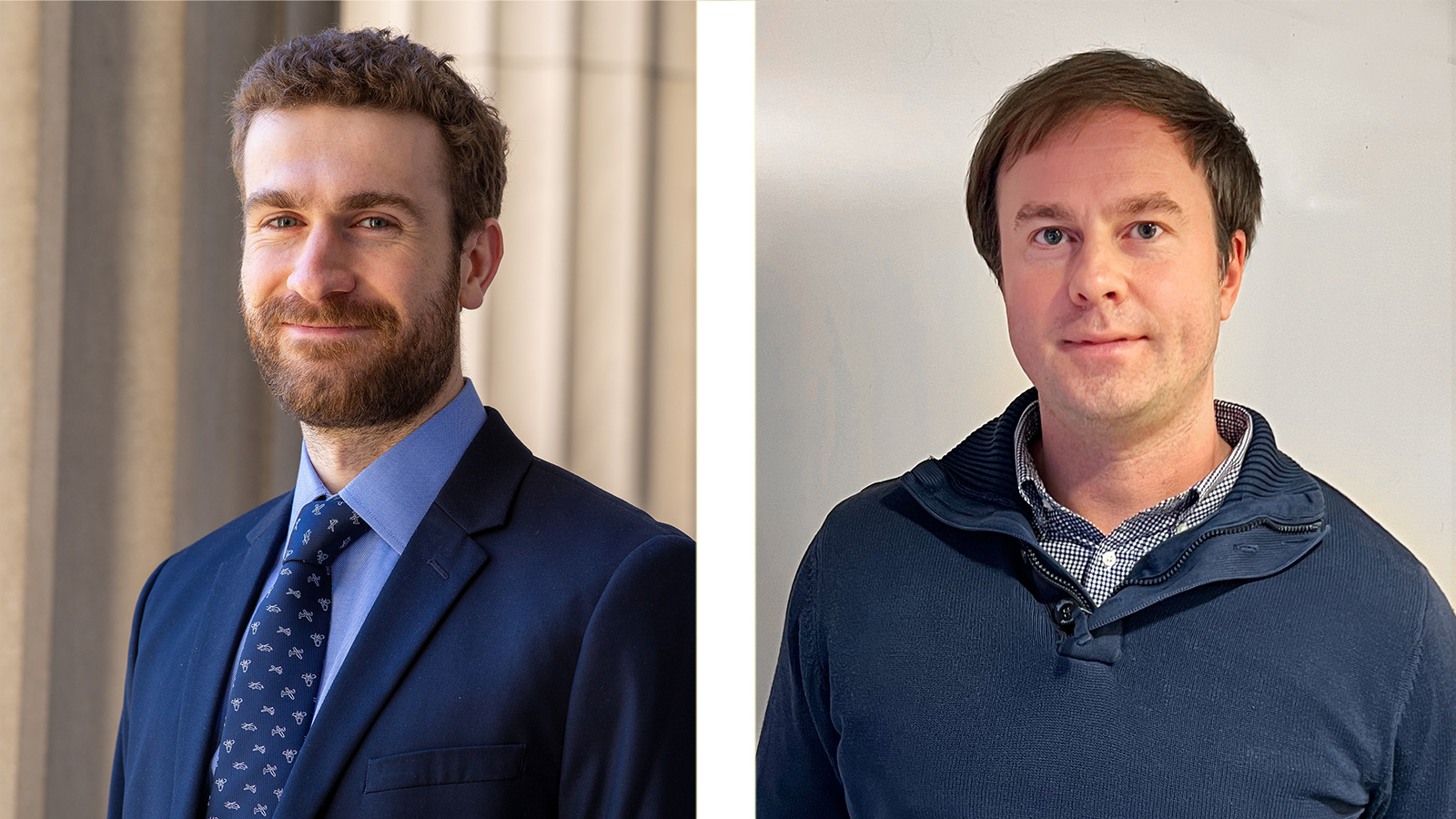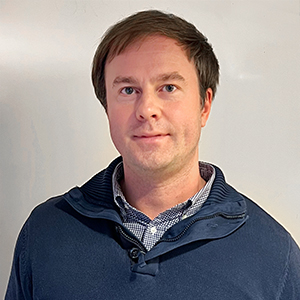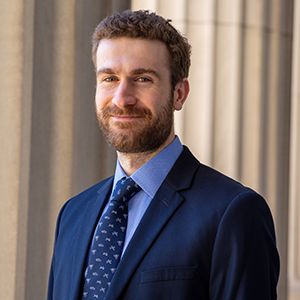Meet our new postdocs

In 2022, KTH Climate Action Centre got its first two postdoctoral researchers, Daniel Adshead and Haluk Akay. Daniel focuses on the role of climate mitigation and adaptation policy in achieving global development outcomes, Haluk on using artificial intelligence to drive sustainable engineering design.
Daniel Adshead

Hello Daniel, what will you be doing at KTH Climate Action Centre?
”I will develop and contribute to research initiatives on climate and development that build on the Climate Action Centre’s partnerships with organisations in Sweden and abroad, including environmental think tanks, energy companies, and international organisations such as the UN. In addition to leading my own research, I will be supervising student projects and expanding the Centre’s focus on themes such as climate adaptation.”
Can you give an example of your research?
”During my doctoral studies I developed methods and tools to assess and plan national infrastructure systems aligned with national emissions and development targets. I worked with national governments and development agencies to inform and improve infrastructure planning across the energy, water, transport, and other sectors in many regional contexts, including Caribbean islands, sub-Saharan Africa, and post-conflict countries.”
What do you think is most important for climate action in the near future?
”Making climate research accessible to policymakers. Taking data-heavy and dense reporting – such as the IPCC reports – and presenting feasible and cost-effective solutions to government decision-makers.”
Haluk Akay

Hello Haluk, what will you doing at KTH Climate Action Centre?
”I will be applying AI methods to learn from product lifecycle data and connect downstream carbon emissions to decisions made early during the design phase. It is my goal to identify the significant features of sustainable decision-making for complex systems based on all data artifacts available in a digitalized society.”
Can you give an example of your research?
”While some decisions made by designers have obvious environmental consequences, others are less intuitive. Especially for junior designers, if a tool could give feedback for the supply chain emissions of various material selections, or highlight functional couplings to other design requirements in a complex system, then the designer could be guided to create products that have the minimum likelihood of triggering unintended negative externalities.”
What do you think is most important for climate action in the near future?
”I believe synergized action across all domains of design, production, and consumption is key to solving this systemic “chicken-and-egg” problem. It is said that 85 percent of a product’s emissions are determined by decisions made during the design phase. Designers need feedback on which decisions may result in the greatest emission downstream.”
